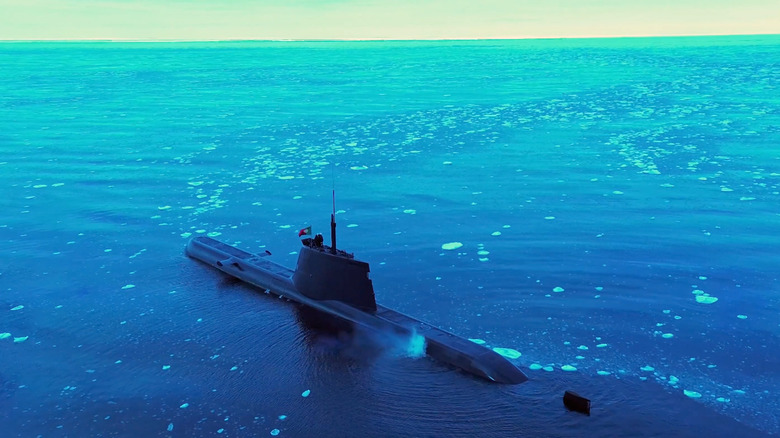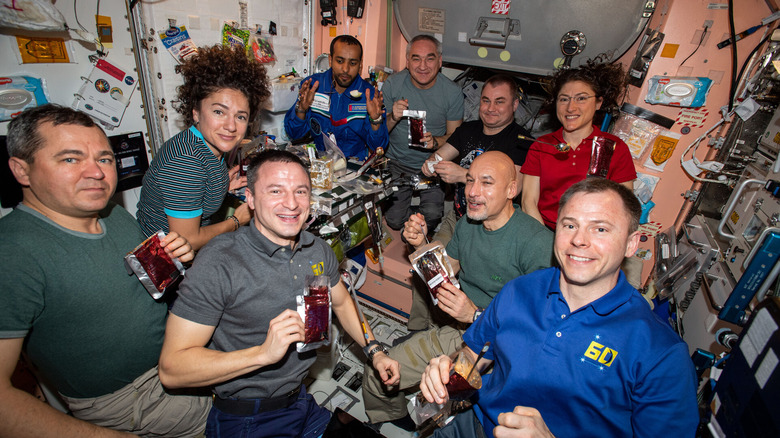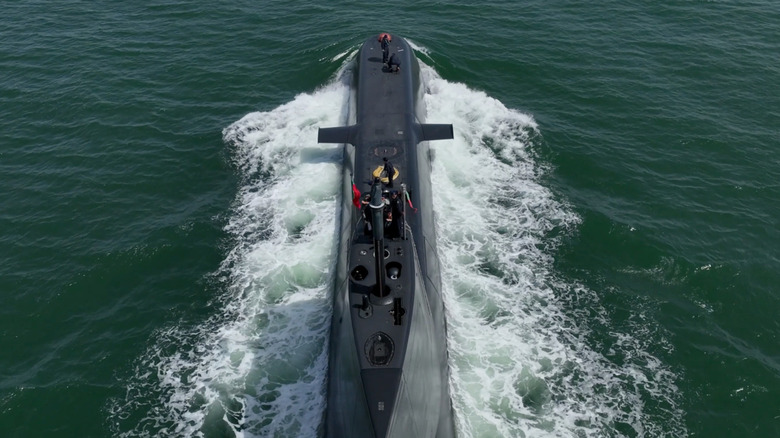How Training In Submarines Helps Prepare Astronauts For Space Travel
There are many difficult things about sending humans to space, from dealing with health effects on the human body to the risks of launch and landing to keeping astronauts well-fed and supplied. However, one aspect of space travel that isn't obvious is the effect it can have on human psychology. Astronauts must face the risks of space stays, all while being confined in a small space with a small number of other people. They are far from home, from their friends and families, and they can't simply pop home for a vacation.
Studying these psychological effects is particularly important as space agencies plan out longer-term future missions to even more remote places like the Moon and Mars. So, to understand what psychological factors might be involved in such missions and how to help astronauts cope with them, they look for clues here on Earth from those who also live and work in extreme environments.
Some of this research takes place in remote places like Antarctica, where scientists spend time on research and must also cope with risk and isolation. Other times, space agencies run experiments called analog studies where they simulate off-world environments and place volunteers into them to see how they cope. But there's another way that space agencies are researching extreme environments, as there exists a whole range of people who must also face similar factors of confinement and isolation. They study people who live and work on board submarines.
Submarines as analogs for space travel
The European Space Agency (ESA) is now working along with the Portuguese Space Agency and the Portuguese Navy to use submarines for studies on isolation and confinement and how that might translate to similar scenarios in space. The project, called SubSea, sends volunteers into a submarine for a period of weeks while scientists study how this affects their mood and stress levels.
A recent mission involved sending 25 volunteers onto a submarine for 60 days. In addition to studying how each person managed stressful environments like cramped conditions and being restricted to the submarine, they also studied how dynamics among the crew played out. They gave the volunteers questionnaires about their mood and stress and also tracked physical characteristics like cortisol levels and their overall health by taking hair and saliva samples.
This kind of information is helpful for understanding how people cope in conditions that have many of the same stressors as space travel. Those who have been to space, such as ESA astronauts who have spent time on the International Space Station (ISS), see similarities between what the volunteers undertake and their own experiences. "SubSea is an essential initiative to understand human resilience in extreme environments," said ESA astronaut Andreas Mogensen, who spent six months on the ISS. "Research into life and work in confined environments, whether under the sea, in space or in remote locations on Earth provide invaluable insights into how humans adapt physically and mentally to isolation and stress."
Knowledge gained beyond space
As well as learning about the psychology of extreme environments for space travel, the researchers hope that their work can inform situations here on Earth as well. ESA outlines areas like "healthcare for polar stations, military deployments, hiking expeditions, populations living in prolonged darkness, and even mining operations" as the kinds of environments that could benefit from further understanding of extreme psychology. This is part of a larger movement in space health, which looks at not only psychological and physical health but also how the two are related.
The idea is that a person who is more stressed may also be more likely to have a compromised immune system, for example, making them more vulnerable to illness. Or how nausea from space sickness can impact an astronaut's mood. It might sound obvious, but it's important to understand the way that physical and mental health relate to each other in order for people in remote environments, including those in space, to be both healthy and happy.
Researchers working on the SubSea project hope that their findings could help those with conditions such as seasonal affective disorder, depression, and sleep disturbances, which can also affect astronauts and others in extreme environments. "These efforts deepen our understanding of extreme environments and play a crucial role in preparing the global space community for the challenges of future missions to the Moon, Mars, and beyond," said Daniel Neuenschwander, ESA's Director of Human and Robotic Exploration.


